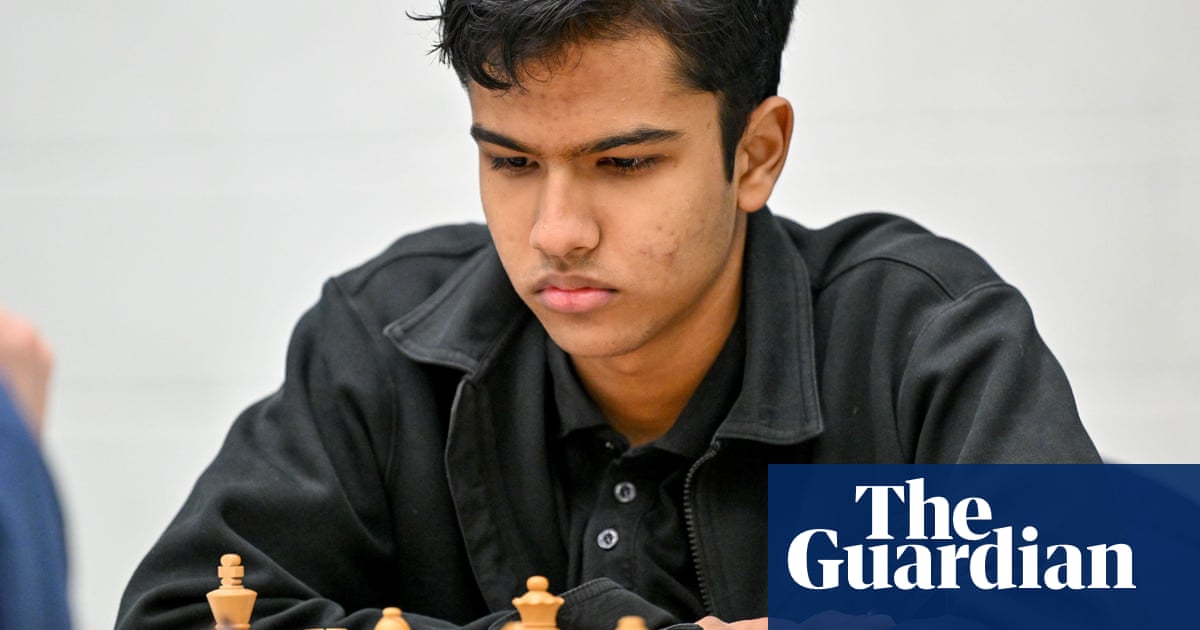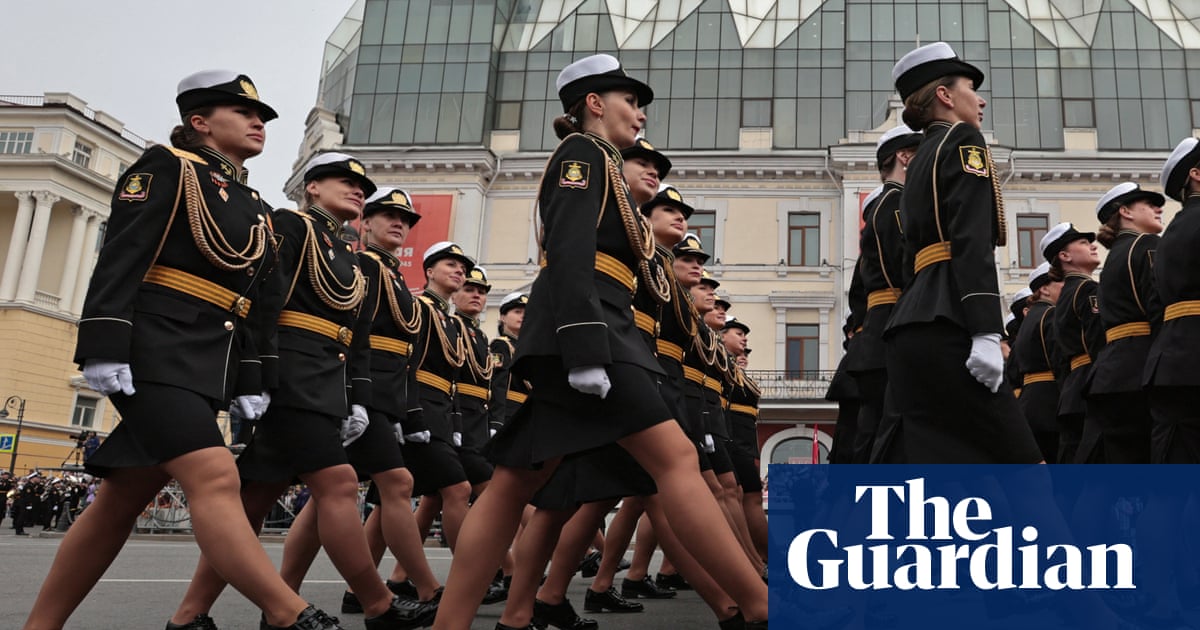Royal Navy ships mobilised to respond to Russian spy ship in North Sea, defence secretary tells MPs
Royal Navy ships have been mobilised to respond to a Russian spy ship in the North Sea, John Healey, the defence secretary, told MPs.
In a statement to the Commons, he said he wanted Vladimir Putin “to hear this message – we see you, we know what you’re doing and we will not shy away from robust action to protect this country.”
Describing what happened, Healey said:
The foreign ship Yantar is currently in the North Sea having passed through British waters. Let me be clear, this is a Russian spy ship used for gathering intelligence and mapping the UK’s critical underwater infrastructure.
Yantar entered the UK exclusive economic zone about 45 miles off the British coast on Monday. For the last two days the Royal Navy has deployed HMS Somerset and HMS Tyne to monitor the vessel every minute through our waters.
I changed the Royal Navy’s rules of engagement so that our warships can get closer and better track the Yantar. So far, the ship has complied with international rules of navigation.
Healey also said this was the second time the Russian spy vessel had entered UK waters in recent months. He said it was closely watched in November, when it was spotted “detected loitering over UK critical undersea infrastructure”. He went on:
To deter any potential threat, I took measured steps then as part of a clear direct response to the Russian vessel. RAF maritime patrol aircraft alongside HMS Cattistock, HMS Tyne and RFA Proteus were deployed to shadow Yantar’s every movement.
Today, I also wanted to confirm to the house that I authorised a Royal Navy submarine, strictly as a deterrent measure, to surface close to Yantar to make clear that we had been covertly monitoring its every move. The ship then left UK waters without further loitering and sailed down to the Mediterranean.
Healey added:
I also wanted President Putin to hear this message: we see you, we know what you’re doing and we will not shy away from robust action to protect this country.
Key events Show key events only Please turn on JavaScript to use this feature
Prompted by my PMQs verdict, a reader asks:
I did a cursory check on BadEnochs education, it would be great if you could get it fact-checked too, She returned to the UK aged 16 and studied for her A levels at Phoenix College, her only other pre Uni education was at a private International school in Nigeria?
There are at least two schools Badenoch may have been referring to when she talked about knowing what it is like going to a school with poor standards.
In the UK Badenoch did her A levels at Phoenix College in south London. She got two Bs (in biology and chemistry) and a D (in maths). In his biography of her, Lord Ashcroft says these results may have been “perfectly respectable” at the college, which implies it was not a place with high academic standards. Badenoch herself has also complained about the teachers there tolerating bad behaviour, and having low aspirations for their pupils (including her).
In Nigeria she did attend a two private schools which, from the account in the Ashcroft biography, sound reasonably good. But she also spent a brief period at the Federal Government Girls’ College Sagamu, “a state-run boarding school in a rougher town about 40 miles north of Lagos”. While she was there, she had to do “manual labour”, cutting the grass with a machete at 5am. She did not like it, and I presume she does not rate that as a place with high standards either.
MPs approve money resolution for assisted dying bill, meaning debate on it can continue in committee
In the Commons the money resolution for the private member’s assisted dying bill has just been passed without opposition.
Any legislation that might require public spending needs a money resolution and, without a money resolution, the end of life (terminally bill) bill cannot continue its passage through parliament.
In the debate Stephen Kinnock, a health minister, said the government remained neutral on the issue of assisted dying, but was supporting the money resolution so the bill, which passed its second reading, can be debated in committee.
He also said that the debate will publish an impact assessement for the bill before MPs debate the bill at its report stage, which will not happen before the end of April.
Healey also told MPs that the government is taking a close interest in cable-cutting technology being developed by the Chinese.
Asked by the Labour MP Blair McDougall about a Newsweek report saying that a review of patent applications show Chinese engineers have developed devices to cut underseas cables quickly and cheaply, Healey replied:
I am aware of [the report]. I am aware of the pace of development of many aspects of Chinese technology and equipment.
Much of it may be for civilian use, but I can assure [McDougall] also that we, with allies, are keeping a very close eye on what they’re developing.
Russian ships cannot be banned from UK waters, Healey tells MPs
John Healey, the defence secretary, told MPs that it was not possible for the government to ban Russian ships from UK waters.
In response to a question from Tan Dhesi, the Labour chair of the Commons defence committee, who asked what could be done to exclude these vessels, Healey replied:
We defend more fiercely than perhaps any other nation in the world the freedom of navigation in our seas, and the ships of all states may navigate through our territorial waters, they are subject to the right of innocent passage.
So some of the steps that he might wish upon the government and urge us to take are simply not available to us under the United Nations law of the open seas.
And so it’s for that reason that we take such steps, and we take the actions that I’ve reported to the house in order to make sure that we monitor, we watch, we track, and that those who may enter our waters with malign intent … know that they will face the strongest possible response.
James Cartlidge, the shadow defence secretary, told the Commons the Tories stood “shoulder to shoulder” with the government in its response to Russia.
He also said that he welcomed Healey’s decision to tell MPs what was happening.
We welcome that transparency because it is critical for our war readiness … that as far as we are able, and without compromising our national security and operational security, we tell the British public the truth about the serious nature of the Russian threat and what that will inevitably mean for public expenditure on defence.
Cartlidge also said Healey was right to change the terms of engagement for Royal Navy ships dealing with Russian vessels. (See 1.44pm.)
Russia 'most pressing and immediate threat to Britain', John Healey tells MPs
John Healey, the defence secretary, told MPs that “Russia remains the most pressing and immediate threat to Britain” and that “any threat will be met with strength and resolve”.
He said:
Russian aggression will not be tolerated at home or in Ukraine. It’s why one of the first acts of this government was for the prime minister to launch the strategic defence review. It’s why the government has increased defence spending next year by almost £3bn and why we will set a path to increase defence spending to 2.5% of GDP in the spring.
Royal Navy ships mobilised to respond to Russian spy ship in North Sea, defence secretary tells MPs
Royal Navy ships have been mobilised to respond to a Russian spy ship in the North Sea, John Healey, the defence secretary, told MPs.
In a statement to the Commons, he said he wanted Vladimir Putin “to hear this message – we see you, we know what you’re doing and we will not shy away from robust action to protect this country.”
Describing what happened, Healey said:
The foreign ship Yantar is currently in the North Sea having passed through British waters. Let me be clear, this is a Russian spy ship used for gathering intelligence and mapping the UK’s critical underwater infrastructure.
Yantar entered the UK exclusive economic zone about 45 miles off the British coast on Monday. For the last two days the Royal Navy has deployed HMS Somerset and HMS Tyne to monitor the vessel every minute through our waters.
I changed the Royal Navy’s rules of engagement so that our warships can get closer and better track the Yantar. So far, the ship has complied with international rules of navigation.
Healey also said this was the second time the Russian spy vessel had entered UK waters in recent months. He said it was closely watched in November, when it was spotted “detected loitering over UK critical undersea infrastructure”. He went on:
To deter any potential threat, I took measured steps then as part of a clear direct response to the Russian vessel. RAF maritime patrol aircraft alongside HMS Cattistock, HMS Tyne and RFA Proteus were deployed to shadow Yantar’s every movement.
Today, I also wanted to confirm to the house that I authorised a Royal Navy submarine, strictly as a deterrent measure, to surface close to Yantar to make clear that we had been covertly monitoring its every move. The ship then left UK waters without further loitering and sailed down to the Mediterranean.
Healey added:
I also wanted President Putin to hear this message: we see you, we know what you’re doing and we will not shy away from robust action to protect this country.
PMQs - snap verdict
It is a low bar, but that was probably Kemi Badenoch’s best PMQs yet. Avoiding the temptation to follow Robert Jenrick and Nigel Farage (see 11.41am), she asked about the children’s wellbeing and schools bill, which had its second reading in the Commons two weeks ago. On that occasion she also mentioned the bill, but only because her party had tabled an amendment trying to turn it into a vote on a grooming gangs inquiry. Today she focused instead on the impact of the bill on academies – not something that Elon Musk has been tweeting about, but an area where even mainstream Labour MPs have concerns about what the legislation might do.
Academies, which were set up by Labour, first just as a niche option for schools failing under local authority control, and then mainstreamed by the Tories, are widely thought of as one of the better public sector reforms of recent years (even though educationists argue that they have not raised standards anything like as much as people like Michael Gove claim). In Tory circles they are regarded as the perhaps the greatest policy success of the last 14 years. The schools bill will curtail some of their freedoms, and the Tories have been arguing for some time that in particular it could lead to some academy teachers facing pay cuts, because the legislation removes the right of academies to diverge from national pay rates.
Badenoch attacked the bill for its overall impact on educational standards, but she focused in particular on the pay issue, even citing the clause of the bill that she said was causing all the problems. In some respects, she was a week too later. Starmer told her that the government has just tabled an amendment to the bill that will ensure that academy teachers don’t face pay cuts, because academies will be bound by a pay floor (the minimum they have to pay), not a pay ceiling. This effectively answered Badenoch’s attack. But the very fact that an amendment has had to be tabled does show that the opposition were right when they started raising this as a loophole. Two weeks ago Bridget Phillipson, the education secretary, told MPs that academy teachers were not at risk of pay cuts under the bill, but the tabling of the amendment suggests that assurance was not robust.
Badenoch’s wider point was about standards. She told Starmer:
It’s about the reforms that [Starmer] is changing. We have an example of where these reforms were not introduced, Wales, which has been under Labour control for two decades.
Welsh educational outcomes have tumbled down international league tables, poor children in England now do better than wealthier children in Wales. This bill denies children the guarantee that their failing schools will be turned into a better academy.
It is an attack on excellence. It is an attack on higher standards. It is an attack on aspiration. This bill is the worst of socialism and isn’t it deprived children in England who will pay the price?
Talking about schools also enabled Badenoch to say that she knew what it was like to be educated at a school with low standards. By itself that does not mean that she would be a good PM, but it does make the point that she is someone who did not have the privileged education enjoyed by most of her Tory leader predecessors.
In the exchanges Badenoch did not win the debate on academies and standards, some of her language was absurdly over the top (“worst of socialism”) and it is hard to what extent curbing academisation may have an impact. But what was obvious was that Starmer was not willing to engage with the standards argument at all. He hammered Badenoch quite effectively by highlighting the positive and non-contentious aspects of the bill, and he was able, rightly, to condemn the Tories for leaving schools understaffed and underfunded. On standards, though? If he is convinced that school standards really won’t suffer, he should have been able to make that case more confidently.
Had Starmer had listened to the second reading debate a fortnight ago, he would have heard Siobhain McDonagh, a loyalist and Blairite MP, warn that good academy schools in her constituency were going to lose out under this bill. “I struggle to see how removing this right to a carefully tailored education will benefit the students that need the additional support that this provides,” she said. At the moment Starmer probably needs to worry more about McDonagh than Badenoch, but at least today the Tory leader was focusing on an issue where the government has questions to answer and where it did not sound like she was just regurgitating Faragism.
Rebecca Smith (Con) says mortgages have hit a five-year high, borrowing is up, and sales have slumped. Does the PM still think she is doing a good job?
Starmer says he thought Smith was reading out the record of the last Conservative government.
Alison Bennett (Lib Dem) asks about the strike by teachers in sixth form colleges. They have not had the same pay rise as secondary school teachers. Did Starmer intend to set up a two-tier education system.
Starmer says the money has gone into sixth form colleges. It is up to the colleges to decide how they spend it, he says.
Iqbal Mohamed (Ind) says Israeli forces have launched a large offensive in Jenin. At least nine people have been killed. What is the government doing to protect Palestinians, and prevent atrocities in the West Bank.
Starmer says he is “deeply concerned” by what is happening in the West Bank. He has raised this several times with the Israelis, he say.s
Sarah Owen (Lab) asks about violent crime in Luton, and says Bedfordshire police should not be funded as a rural police force.
Starmer says the government is tightening the law on knives. It is unacceptable that knives can be brought with “two clicks”.
Wera Hobhouse (Lib Dem) says the APPG on eating disorders is publishing a report on how to improve treatment for them. Will the government consider it seriously?
Starmer says it will be considered “very seriously”.
Andrew Snowden (Con) says this was supposed to be a honeymoon period for the goverment. Does Starmer accept that he is the root cause of the government’s problems?
Starmer says he had a landslide victory. And the Tories were regularly losing ministers, he says.
Mike Martin (Lib Dem) says Lord Robertson, the former Nato secretary general leading the strategic defence review, told the defence committee that he could not guarantee the review’s recommendations would be fully funded. Will they?
Starmer says the review will be fully funded. He has committed to lifting defence spending to 2.5%, he says.
Bernard Jenkin (Con) says cutting taxes and cutting regulation are the only way to promote growth.
Starmer says forecasters are revising their growth forecasts for the UK upwards.
The Speaker, Lindsay Hoyle, reprimands Chris Philp, the shadow home secretary, for heckling too loudly. Starmer says Philp was “Liz Truss’s righthand man, so we should not expect any better”.
Starmer ducks question about whether he has dropped his previous opposition to building third runway at Heathrow
Adrian Ramsay, the Green party co-leader, says Starmer voted against a third runway at Heathrow in 2018. What is his position now?
Starmer says he will not comment on speculation. But he says he won’t take lectures from an MP opposing vital infrastructure (pylons for offshore energy) in his constituency.

 3 months ago
66
3 months ago
66













































